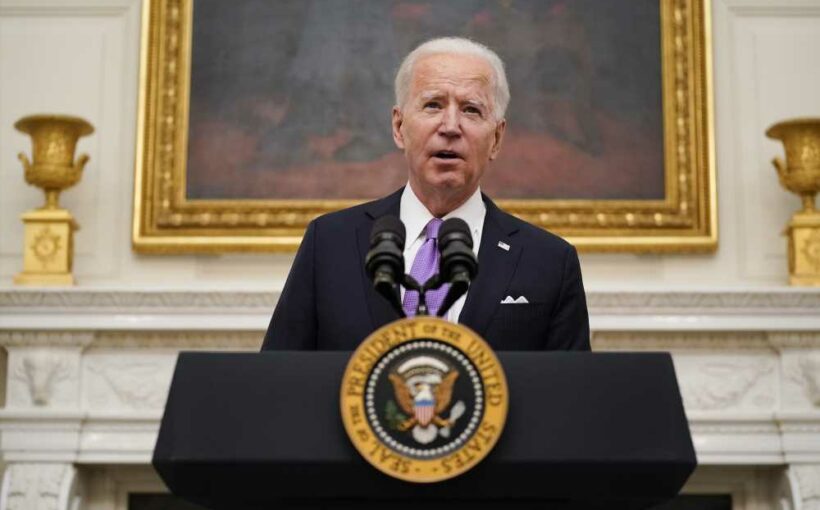President Joe Biden signed an executive order aimed at relieving food insecurity, a desperately needed measure as nearly one in five households with children recently reported not having enough food for the week. Biden signed the executive order on Friday along with another that will increase the minimum wage for federal employees to $15.
The administration describes the executive order addressing hunger as “an all-of-government effort,” meaning it will involve multiple agencies.
Biden’s orders aim to boost food aid for students by 15 percent, to help children get food at a time when free or reduced-cost lunches are not available because schools are not doing in-person instruction. The orders also ask the Department of Agriculture (USDA) to allow states to expand Supplemental Nutrition Assistance Program (SNAP) benefits. He also asked the USDA to increase SNAP allotments for the lowest-income households, and he wants the agency to recalculate the cost of buying food for a nutritious diet, which it uses to determine SNAP benefits.
Additionally, Biden is requesting the Treasury Department improve the delivery of stimulus payments, prioritizing getting funds to households who have not yet claimed their money and expanding outreach efforts to those households. He will also involve the Department of Labor to ensure that workers whose employment may expose them to Covid-19 have the right to refuse that work and still qualify for unemployment insurance. The administration is also setting up an effort to help Americans access benefits, tax credits, loans, and unemployment payments from state and federal governments.
Related
The Audacity of 'Dreams': Biden's Inauguration Week and the Triumph of American Musical Weirdness
Are Bandanas Effective as Face Masks? It All Depends on How You're Wearing Them
Related
Bruce Springsteen on Making 'Born to Run': 'We Went to Extremes'
Barry Gibb: 13 Essential Tracks
In a second executive order Friday, Biden restored and expanded bargaining power and worker protections that were rescinded by former president Trump and established a minimum wage for federal employees of at least $15 per hour.
While Biden has a more sweeping proposal for Covid relief, that package will need to go through Congress. His executive actions this week were all things he could accomplish unilaterally.
As Brian Deese, director of the White House National Economic Council, pointed out, time is of the essence. “The American people cannot afford to wait,” Deese told reporters at a briefing this week. “So many are hanging by a thread. They need help, and we’re committed to doing everything we can to provide that help as quickly as possible.”
Source: Read Full Article


